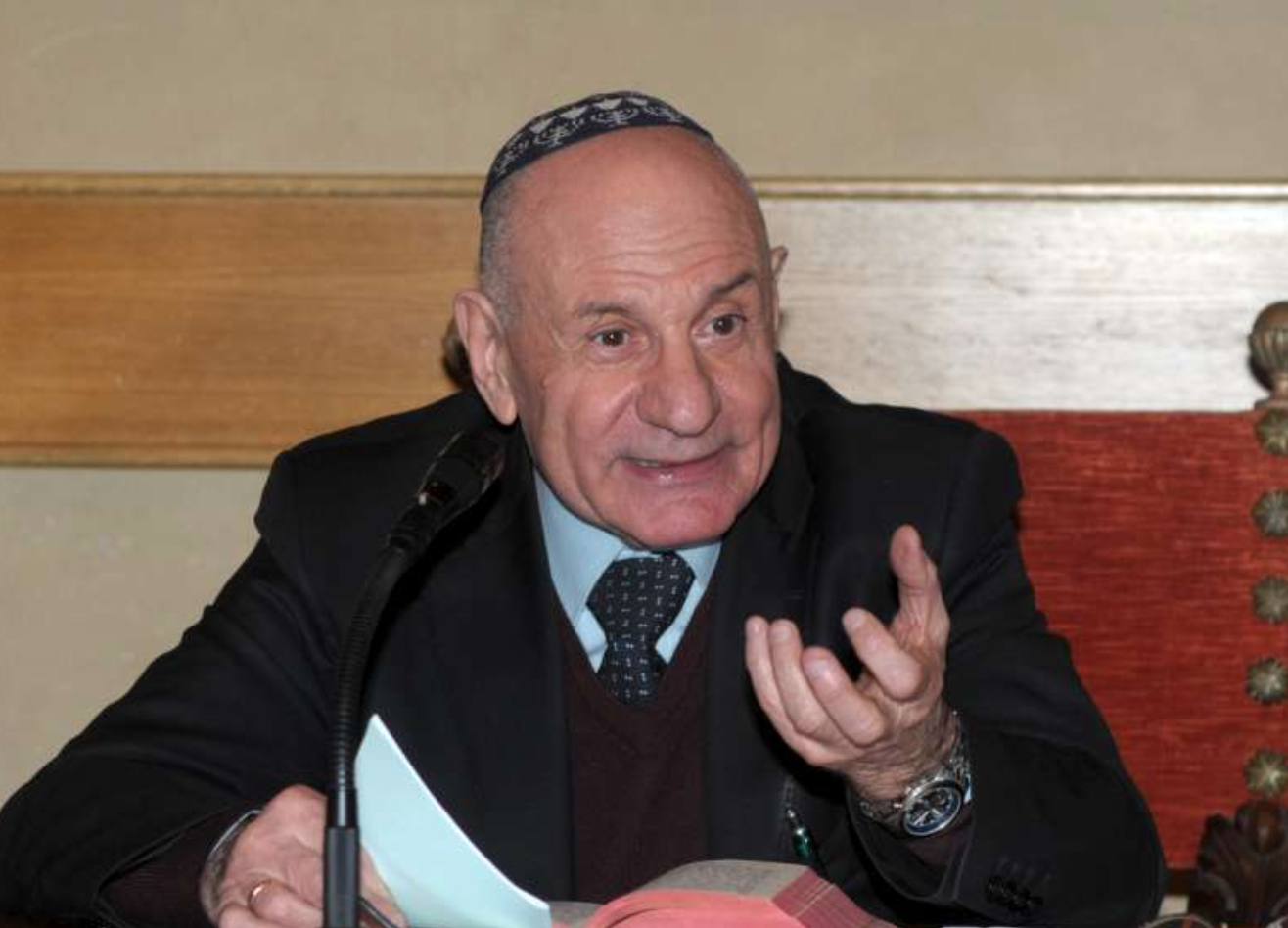MAESTRI – Rabbi Luciano Caro turns 90: retirement can wait

“I have many projects in mind. I told myself, I will deal with them once I retire. In theory, I have been retired for thirty years, but I always have a lot to do.” Luciano Meir Caro, the dean of the Italian rabbis, still faces life with a smile. Born in Turin in 1935, he has been the Chief Rabbi of Ferrara since 1990 and recently turned ninety. He is deeply appreciated by all Italian Jewry.
“The numerical value of your age in gematria corresponds to the letter ‘zadik,’ and that is exactly what you have embodied for all of us,” wrote Noemi Di Segni, UCEI president, in a heartfelt message of congratulations. (Gematria is the numerological system by which Hebrew letters correspond to numbers.)
“Zadik”: the righteous one. Is that how he sees himself? “I have given a lot, and I have received a lot,” the rabbi reflected in an interview with Pagine Ebraiche. He recalls that the his “vocation” came to him after WWII. “It was actually a dual calling because we were always together. By ‘we,’ I mean my friend, Giuseppe Laras, and me. During the Shoah, he lost his mother, and I lost my father. We started attending the temporary synagogue set up in Turin by Rabbi Dario Disegni. ‘Would you like to attend a course?’ he asked us. It would have been difficult to say no to such a person. We both agreed that studying a little bit more would not hurt us. It was a revelation. We became so passionate about it that a few years later, we both became rabbis, each following our own path.”
“After earning the title of Maskil, we were sent to Jewish communities without rabbis during the High Holidays to gain experience. Rav Laras went to Ancona several times, and I went to Venice.” (A maskil is a rabbinical title principally used in Italy that means “scholar.”)
In 1959, Caro was appointed Deputy Rabbi of Turin, a position he held until 1976. He then served as Chief Rabbi of Trieste for a couple of years. “It was a significant change,” he said. “For the first time, I had no one above me. I was fully in charge.” From 1978 to 1988, he held the same position in Florence.
Since 1990, he has been in Ferrara, also acting as the rabbi for several other communities, including Pisa and Vercelli, and previously Verona and Mantua.
“I accepted the position in Ferrara thinking it was a small town where I would only stay a few months—just enough time to move on and focus on other things. But those few months turned into 35 years of uninterrupted service. I still have some suitcases from that time which I never unpacked.”
In many ways, Rav Caro is the city’s longest-standing institution. In the heart of Ferrara, in Via Mazzini — home to the community’s buildings and the synagogue complex immortalized in one of Giorgio Bassani’s most poignant stories — nearly everyone smiles and greets him as he walks by with his wife. He often responds with a clever remark or a thoughtful piece of wisdom. “The Jewish community here is tiny. There are only a few registered members, and many of them live elsewhere but remain connected out of affection. There is a lack of young people and children. That is the sad part of my job.”
“But there is also something deeply rewarding about being a representative of Judaism and of the Jewish people, not only in Ferrara, but beyond,” he adds. “I am often invited to speak at events throughout the region.”
In recognition of his role, in 2022 the city awarded him honorary citizenship, citing the “cultural, ethical, and social values” he upheld throughout his long tenure in Ferrara. “I’ve encountered many different traditions and communities,” he explains. “I was trained in the Italian rite. While in Trieste, I came across a fascinating blend of German and Spanish influences. In Florence, I adapted to the Sephardic tradition. These are the kinds of challenges that enrich a rabbi’s experience.”
What is the most powerful memory from nearly seventy years of rabbinical service? “It was during my time in Florence,” he says, “when I officiated a wedding in Jerusalem. While performing the ceremony, I suddenly thought of my father, who died in Auschwitz. I wondered what he would have thought, seeing his son bless a marriage in the land of Israel. I could not hold back my tears.”
Translated by Alessia Tivan and revised by Matilde Bortolussi, students at the Advanced School for Interpreters and Translators of the University of Trieste, trainees in the newsroom of the Union of the Italian Jewish Communities – Pagine Ebraiche
